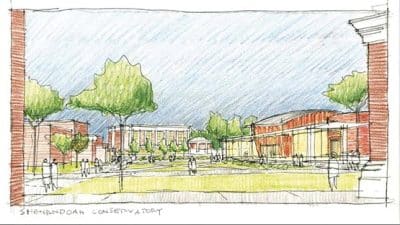
Super Bowl LVII is this Sunday. WalletHub released its report on 2023’s Best & Worst Cities for Football Fans.
The personal finance website determined the best places for loving America’s favorite sport by comparing more than 240 cities across the United States with at least one college or professional football team based on 21 key metrics.
Data includes the number of NFL and college football teams, stadium capacity and fan engagement in a city.
The best city for football fans is Pittsburgh, followed by Green Bay, Dallas, Boston and Los Angeles. New York is no. 6 and Miami is no. 7.
The worst cities for football fans are Valparaiso, Ind. Easton, Maine, Fort Collins, Col., Louisville, Kent., and Lawrence, Kansas.
The lowest average ticket price for an NFL games is $84.76 in Jacksonville, Fla., which is 1.8 times less expensive than in Las Vegas, where the highest ticket price is $153.47.
The highest engagement of fans for an NFL team is 73.32 in Green Bay, Wis., 71.2 times higher than in New York, the city with the lowest at 1.03.
Experts offered opinion on the biggest challenges facing professional football today.
“The NFL is facing several challenges, though few of them are financial. The majority of issues I see in their immediate future surround player safety,” Dr. James Weiner, assistant professor at the University of Tampa, said. They have to get this right, and I do not know if it will blow over as quickly as the 2013 CTE settlement. I am no medical professional, but having a player go into cardiac arrest, and another go into a fencing response in the same season is a bad look. From a financial perspective, I also see increased scrutiny over spending hundreds of millions of dollars on stadium subsidies coming more to the forefront, especially if we dip into an economic recession.”
Mark Moore, associate professor at East Carolina University, said the biggest challenge is increasing diversity, equality and inclusion, especially with coaching and front-office staff, and keeping game attendance from decreasing.
“Fans have multiple mediums for viewing the contests thus keeping game attendance at that high level is becoming a real concern,” Moore said.
Weiner said second-screen viewing on a tablet or smartphone is significantly increasing as a way for fans to save money.
“There are fandom apps, social media integrations and rewards programs that all make watching the game more fun, especially for fans who only moderately enjoy the game itself. Go over to the different player’s social media pages, see who you connect with, and form a new fandom. The players’ personal brands are more accessible than ever so fans can feel closer to the person on the field…If you are going to the actual game, take advantage of the newer stadium amenities. Football stadiums are no longer gigantic concrete donuts with a field in the middle. There are party lounges, pre-game entertainment, games for kids, and social areas that are often free. For getting into the game one tip, I recommend is to go to a bar nearby the stadium a few hours before kickoff and check last-minute ticket prices about 30-40 minutes before the game starts. If you find a steal, buy it and walk across the street to the game. If there is no good deal, enjoy the game at the bar,” Weiner said.
Does hosting the Super Bowl economically help or hurt the host city?
“There is a similar concern when discussing the economic benefits of the Super Bowl. Does the event bring in revenue that would otherwise be spent in another economy? Absolutely. Tourists from around the country will travel and pay exorbitant amounts of money. That money gets taxed. The concern is the same balance with football teams in general. How much does the city have to spend on the bid and operations of the Super Bowl? What does the city have to do for the weeklong events held prior? It becomes a harder question to answer when you balance the benefit with the associated costs,” Weiner said.
Moore said that if a sporting event is poorly managed it can negatively affect a city.
“The event can generate prestige, increased publicity and a feeling of goodwill in the hosted city,” Moore said.










